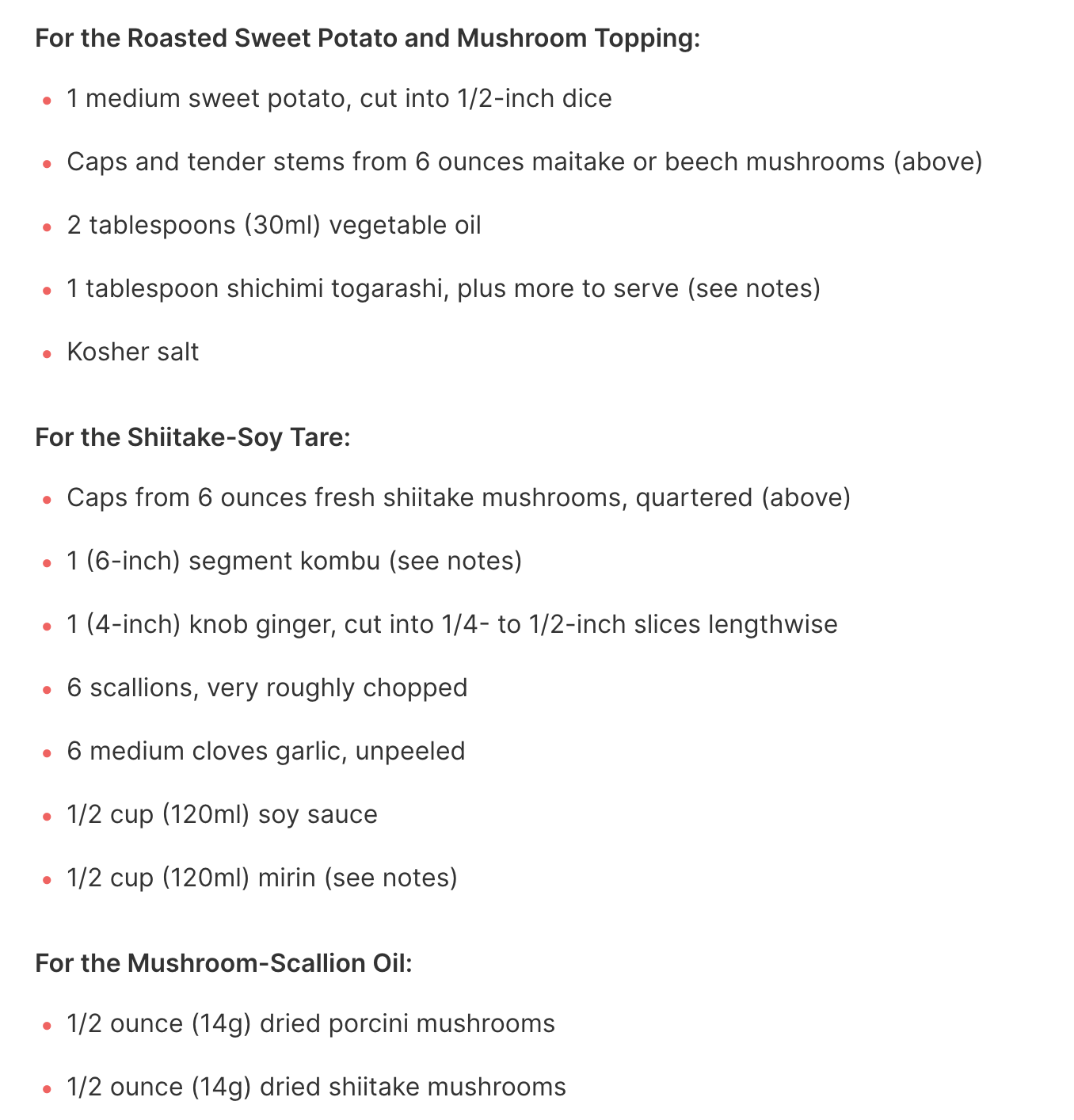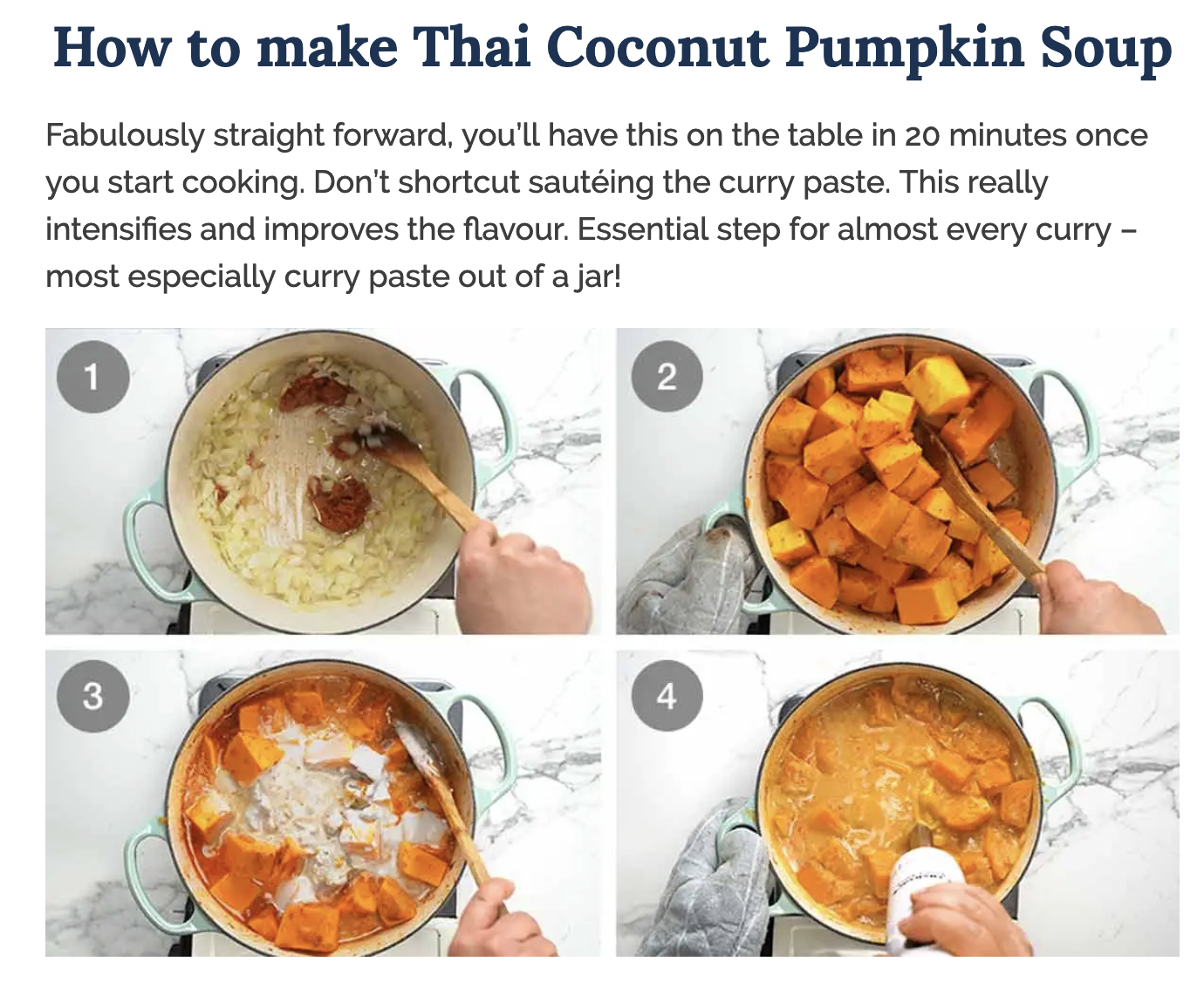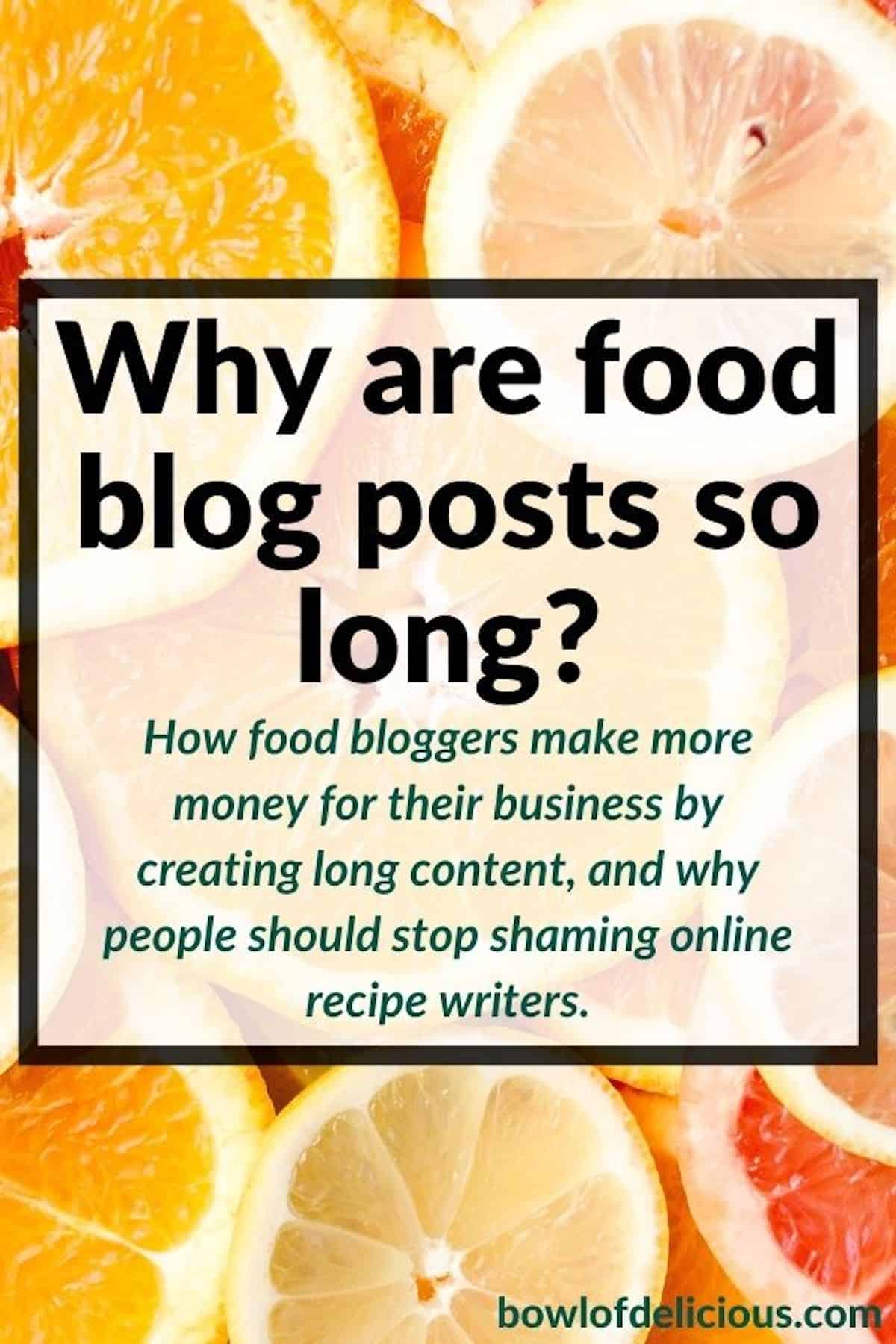Have recipes changed?
Like so many observations about life, I'm not sure if things have changed or if I'm just growing older. But for this post, I'm going to assume that things have actually changed.
My recollection of recipes as a kid is that they were very didactic: here are the ingredients, here are the procedures, follow them. To learn to cook something new, I would find a new recipe and follow the instructions. And that's it. If it turned out well and wasn't too complicated – great, I've got a new recipe to make. If it turned out bad – bummer, bad recipe – I won't make it again.
Today, recipes seem better.
They include more structure and context. Many recipes collect their ingredients by parts (e.g., these 8 ingredients play a role in the curry paste; those 5 ingredients you cook separately first before combining with the others; those 4 ingredients are garnishes or add-at-the-end things). This helps readers to make sense of how the recipe comes together.

You will also find more explanations for why the recipe works to produce the outcome it produces. For instance, the high heat caramelizes the Brussels sprouts leading to a nuttier, charred flavor. Or the baking soda raises the pH of the water, helping to break up the pectin in the potatoes. Often these are not precise scientific theories about cooking; they're more like working principles – principles that help people extend their knowledge to other cooking situations.
Another development has been more pictures. Everyone is used to seeing pictures of the completed dish. But I notice more pictures of food at different stages of the cooking process. This offers a fantastic reference for someone following the recipe, especially when something needs to cook down or brown or blend in some way.

I also see more explicit emphasis on underappreciated skills in cooking: knife skills, pantry-stocking skills, grocery shopping skills. And many recipes now include short videos illustrating the relevant cooking or preparation techniques. Reader comments – when they're interpretable – can also add to the knowledge base by providing potential ingredient substitutions, and offering further questions and explanations.
All of this is... good? Am I actually writing about a positive development in knowledge transmission? Yes. People can get smarter. As far as I can tell, Cooks Illustrated and Serious Eats led the way here, though I wouldn't be surprised if I was wrong.
Contrast this positive development with a more widely acknowledged change to recipes: the bloat that results from SEO optimization and the need to make money through ads. The internet – more specifically, search engines – have become the primary medium for recipe transmission. To rank well, recipe websites include lots of keywords and try to induce "scroll time", where a user spends a lot of time on the page in question (which also means more ad views). The result is all kinds of extraneous context that makes learning from the recipe a worse experience: cutesy stories about how the recipe relates to your great aunt's struggle with cancer; encyclopedic-level discussions on the varietals of a particular key ingredient; endless musings on pairings and preparation methods. The actual recipe is – almost invariably – all the way at the bottom.
So we have a positive development, presumably led by people who simply thought, "how could I make recipes more effective?" which leverages basic technologies (words, pictures, visual organization) paired with a negative development induced by the economics of attention on the internet.
As annoying as recipe bloat can be, I'm pretty happy with this tradeoff.
References
I remember listening to a podcast about recipe bloat or reading about it somewhere, but for the life of me I couldn't figure out where it was. Here are a few food bloggers explaining why food blogs are the way they are (Cadry Nelson, third link below, defends the practice, giving a different perspective than I did above):






Member discussion